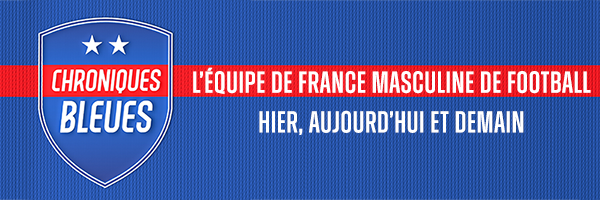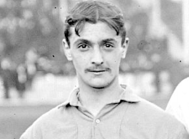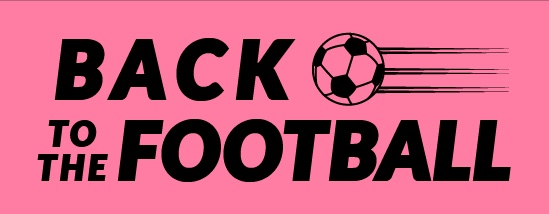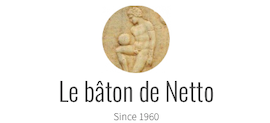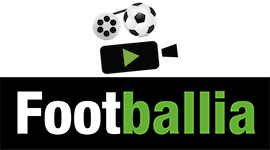Lire sur le site de Soccer Nostalgia The Soccernostalgia Interview-Part 35
Cet article fait partie de la série Dialogue avec Soccer Nostalgia
Lire la version en anglais. English version here
Soccernostalgia : Michel Hidalgo a commencé la saison 1979/80 après une saison quelque peu entachée par la longue blessure de Platini. L’Euro 1980 paraît hors d’atteinte. Quelle était l’ambiance au début de cette saison ?
Bruno Colombari :Plutôt inquiète. L’équipe de France sort de deux saisons mitigées, sans phase finale et sans trop de repères. De plus, elle se retrouve dans un groupe piège, avec deux adversaires de grande valeur, les Pays-Bas finalistes en 1974 et 1978 et la Belgique, vice-championne d’Europe en 1980. La République d’Irlande n’est pas un cadeau non plus, alors que Chypre est largement prenable. La contrepartie, c’est qu’il y a deux places qualificatives pour la première fois, car en 1982 le format de la Coupe du monde passe à 24 équipes. Ce qui laisse une certaine marge d’erreur qui sera bien utile, on le verra !
La saison a commencé le 3 septembre, 1980, avec un match amical à Paris contre le club italien Juventus avec de nombreux futurs vainqueurs de la Coupe du monde 1982. La France s’est imposée (1-0). Cela contraste avec les années précédentes, lorsque la France a remporté ces matches assez confortablement. Que retenez-vous de ce match ?
La Juventus était déjà une équipe redoutable à cette époque, et pas réputée pour laisser beaucoup de place aux attaquants adverses. Son meneur de jeu était l’Irlandais Liam Brady, qui reviendra au Parc six semaines plus tard. Battre cette équipe-là, même sur un score serré (à l’italienne, donc) était déjà une performance, sachant que l’équipe de France n’avait plus battu l’Italie depuis 1920. Mais l’attaque composée des Nantais Baronchelli et Amisse et du Stéphanois Laurent Roussey ne fonctionne pas. Roussey ne reviendra d’ailleurs que deux ans plus tard, à l’automne 1982, puis disparaîtra.
Le 11 octobre 1980, la France se rend à Limassol pour affronter Chypre pour son premier match de qualification pour la Coupe du monde. Seule une victoire était attendue et la France profita de ce premier match pour travailler sa différence de buts avec une victoire (7-0). Que pensez-vous de ce match ?
C’est l’exemple même du match piège comme l’équipe de France en a connu de nombreux dans son histoire, avec entre autres une défaite à domicile contre les amateurs norvégiens en 1968. Le match se joue sur une pelouse équipée d’arroseurs automatiques qui ne sont pas enterrés et qui sont donc dangereux en cas de chute dessus. Mais les Bleus prennent ce match très au sérieux et se le rendent facile comme ils l’avaient fait l’année précédente face aux Etats-Unis à East Rutherford (6-0). Jean-François Larios et Michel Platini sont très complémentaires, le premier marquant deux buts sur pénalty (cas unique dans un match de l’équipe de France) et le second signant un doublé en neuf minutes. Sur deux passes décisives de Jean Tigana, qui se rend déjà indispensable au milieu alors que ce n’est que sa deuxième sélection.
Ce match contre Chypre était le dernier sous les couleurs françaises pour Henri Michel, qui jouait en tant que Libéro. Décrivez les raisons de sa convocation inattendue.
Henri Michel n’avait plus joué en sélection depuis février 1979 et s’était reconverti en libéro au FC Nantes. Les deux titulaires habituels, Marius Trésor et Christian Lopez sont forfaits. Michel Hidalgo demande donc à son futur successeur de dépanner en défense. Ce sera sa 58ème sélection, sa dernière en effet.
Le 28 octobre 1980, la France accueillait la République d’Irlande à Paris pour son prochain match de qualification pour la Coupe du monde. Les Irlandais ont été un test plus difficile. La France s’est imposée (2-0), mais les Irlandais ont eu un but injustement écarté (Robinson à la 57e minute). Y avait-il juste un soulagement pour avoir obtenu les points ?
Par rapport à la victoire obtenue sur le même score quatre ans plus tôt, en 1976, ce match-là a été beaucoup plus compliqué après un début remarquable avec un but de Platini sur une nouvelle passe de Tigana, la troisième en deux matchs.
Les optimistes pouvaient y voir la confirmation que les Bleus pouvaient gagner même en jouant mal, et qu’ils avaient démarré au mieux leur campagne de qualification pour 1982 avec deux victoires et deux clean sheets. Mais c’était contre les deux adversaires les plus faibles du groupe, même si les Irlandais comptaient déjà deux victoires (dont une sur les Pays-Bas) et un nul avant de venir au Parc.
Le 19 novembre 1980, la France se rend à Hanovre pour affronter les récents champions d’Europe de l’Allemagne de l’Ouest. L’Allemagne de l’Ouest était en contrôle total et a gagné (4-1). Comment la performance de la France a-t-elle été jugée par la presse ?
Il y avait longtemps que l’équipe de France n’avait plus encaissé quatre buts, depuis 1969 (1-5 à Wembley contre l’Angleterre). Mieux même, depuis que Michel Hidalgo était sélectionneur, elle n’avait jamais concédé plus de deux buts dans le même match. De plus, il faut se souvenir que depuis 1976, les Bleus réalisaient souvent de bonnes performances en amical contre des adversaires de niveau mondial. Ce score très lourd, même s’il n’y avait pas d’enjeu, a été vécu comme une petite humiliation. Il est possible que vingt mois plus tard, à Séville, ceux qui y ont participé des deux côtés s’en soient souvenus.
Après ce match, le sélectionneur de l’Allemagne de l’Ouest, Jupp Derwall, s’est moqué de Platini en le décrivant comme un général inspectant un champ de bataille avec des jumelles. Pouvez-vous décrire comment Platini a eu le dernier mot avec St. Etienne quelques jours plus tard ?
Ah oui, parce que la revanche a été foudroyante. C’est d’ailleurs à ça qu’on reconnaît les très grands joueurs : il arrive qu’ils ratent des matchs, mais ça les motive encore plus au moment des retrouvailles. En Coupe UEFA, Saint-Etienne s’est déplacé à Hambourg le mercredi suivant. Il y a cinq Stéphanois qui ont joué contre la RFA (Janvion, Lopez, Zimako, Platini et Larios, plus Battiston qui était remplaçant), et deux Hambourgeois qui ont battu la France (Kaltz et Hrubesch). Platini a signé un doublé, Larios et Zimako ont également marqué. 5-0 au final avec un csc de Hartwig. A noter que Janvion, qui est habituellement arrière droit, évolue au milieu de terrain. Ce qu’il aurait pu faire à Séville après la sortie de Battiston…
Le 18 février 1981, la France se rend à Madrid pour affronter l’Espagne. Hidalgo a profité du match pour expérimenter une formation 4-4-2 en plaçant Platini comme avant-centre. La France a eu de nombreuses occasions mais a perdu (0-1). Quels sont vos souvenirs de ce match ?
C’est un changement tactique important que tente Hidalgo, effectivement, mais sans doute pas avec les bons joueurs pour ça. Ce milieu à quatre, dont le principe est de permettre à Platini de jouer plus haut, près des deux attaquants, voire entre les deux en position d’avant centre (aujourd’hui, on dirait un 9 3/4, un peu comme Griezmann), fonctionnera très bien avec Genghini, Tigana et Giresse derrière lui. Mais à Madrid, il n’aligne aucun de ces trois, et préfère Moizan, Christophe et Larios, ce qui n’est pas pareil. Larios fait un très grand match, mais le reste ne fonctionne pas très bien et les Bleus manquent d’efficacité, même s’ils marquent un but valable, même si un Espagnol touche un ballon de la main sur sa ligne de but et même si le pénalty marqué par Juanito en fin de match était cadeau.
Le 25 mars 1981, la France affrontait les Pays-Bas à Rotterdam pour son troisième éliminatoire de la Coupe du monde. La France jouait sans Platini et Hidalgo appela Giresse pour le suppléer. La France a eu beaucoup d’occasions et était frustrée de ne pas obtenir au moins un point. Les Néerlandais se sont imposés (1-0) sur un coup franc d’Arnold Muhren. Comment cette défaite a-t-elle été perçue ?
Un peu comme pour le match précédent. Injustice, manque de chance, maladresse, dont celle du gardien Dominique Dropsy qui lui coûtera sa place en sélection (il ne rejouera que les deux matchs suivants). Giresse est rappelé, enfin (pour la première fois depuis septembre 1978), mais Tigana reste sur le banc et c’est Moizan qui complète le milieu avec Larios. Les Bleus ont été défaillants derrière et devant, avec d’énormes occasions gâchées par Lacombe et Six notamment. Et, encore une fois, ils ont perdu à l’extérieur en compétition, une mauvaise habitude qui ne disparaîtra qu’à la fin de la décennie, quand Platini sera sélectionneur.
Le rappel d’Alain Giresse est important pour l’avenir du football français et du ‘Carré Magique’. Était-il évident qu’il aurait dû être inclus beaucoup plus tôt ?
J’en suis persuadé, d’autant que les tentatives de 1977 avait été convaincantes. Mais Giresse n’était pas du genre à revendiquer quoi que ce soit, et il s’était à l’idée qu’il ne serait jamais titulaire en Bleu, que son avenir était bouché par Platini. On voit que dans la tête d’Hidalgo commence à se dessiner ce qui sera le carré magique, avec Genghini, puis Tigana, puis Giresse, mais par petites touches et jamais ensemble. C’est prometteur, bien sûr, mais ce n’est pas suffisant.
Le 29 avril 1981, la France accueillait la Belgique à Paris pour son prochain match de qualification pour la Coupe du monde. La France devait s’imposer pour conserver ses espoirs de qualification et s’est imposée (3-2). Comment cette victoire vitale était-elle perçue à l’époque ?
C’était le match qu’il fallait absolument gagner. Un nul aurait coûté la qualification aux Bleus, et la Belgique était la meilleure équipe du groupe, qui finira d’ailleurs première du groupe. Et Platini et Larios, qui brillent avec Saint-Etienne, sont forfaits tous les deux. Que fait Hidalgo ? Ce qu’il fera un an plus tard contre l’Autriche en Coupe du monde : il associe Tigana, Genghini et Giresse, avec trois attaquants (Soler, Rocheteau, Six) qu’on retrouvera aussi en Espagne.
Le match est magnifique, même si les Belges marquent au bout de cinq minutes. Mais les Bleus réalisent une première mi-temps exceptionnelles et mènent 3-1 au bout d’une demi-heure, un renversement très rapide que l’on reverra en 2018 contre l’Argentine. Et elle parviendra à conserver le résultat malgré un deuxième but belge. On parle souvent du France-Pays Bas de novembre 1981 comme d’un match décisif pour la génération Hidalgo, mais celui-là l’était tout autant. Et sans Platini !
Pour son dernier match de la saison, la France recevait le Brésil en amical à Paris le 15 mai 1981. Une équipe de France manquant de nombreux titulaires était battue par une excellente équipe brésilienne (1-3). Que pensez-vous de ce match ?
Il manquait trop de titulaires ce soir-là (Giresse, Platini, Larios, Rocheteau…) et Hidalgo en a profité pour essayer Philippe Anziani et Patrick Delamontagne en cours de match. Trésor se blesse juste après le premier but brésilien, et le match est devenu très compliqué. Ce Brésil-là, avec Socrates, Junior, Zico, Oscar ou Eder était très fort, d’autant que Pelé était présent et venait d’être sacré Sportif du siècle par le journal L’Equipe.
C’était une équipe très technique, avec un toucher de balle superbe, et la capacité à accélérer à n’importe quel moment. Bien plus forte que celle de 1978, que les Bleus avaient battue. C’était la première défaite à domicile de Michel Hidalgo depuis qu’il était sélectionneur, la première au Parc depuis huit ans. Mais c’était un amical, et l’équipe de France ne voulait plus être championne du monde des matchs amicaux !
Quel bilan faites-vous de la saison en général ?
Avec quatre défaites, il n’est statistiquement pas bon, surtout que le nombre de buts encaissés (11 sur les cinq derniers matchs) devient inquiétant. La RFA et le Brésil ont largement dominé l’équipe de France, ce qui est mauvais signe à un an de la Coupe du monde. Mais les Bleus ont gagné trois fois sur quatre en compétition, ce qui est encourageant. Tigana a trouvé sa place au milieu, et Giresse et Genghini ont fait des rentrées très convaincantes au printemps.
On a l’impression que quelque chose se passe, qu’une mutation s’opère, qui va aller progressivement vers un 4-4-2 offensif et la fin du trio d’attaque Rocheteau-Lacombe-Six. Cette équipe-là reste fragile derrière, mais elle a du caractère et elle produit du jeu, même si elle gâche trop d’occasions de but. C’est un point d’équilibre entre la première période de l’ère Hidalgo, et la deuxième qui va bientôt arriver. Mais c’est un équilibre instable.

